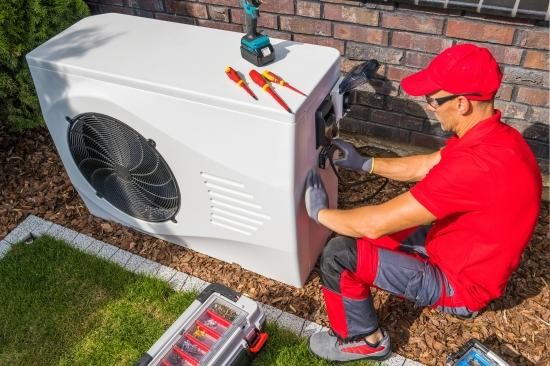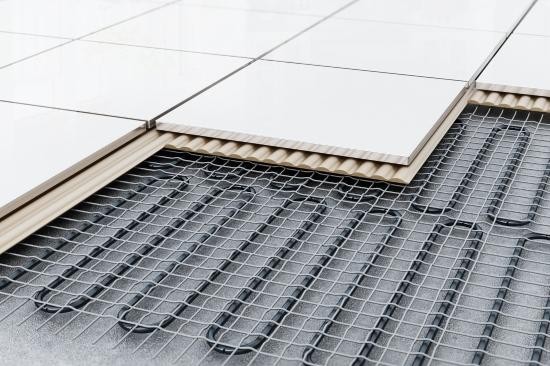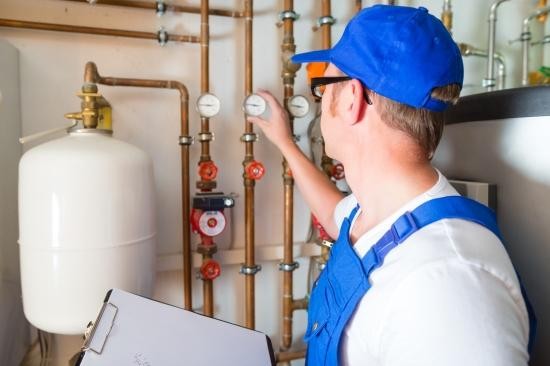Introduction
Choosing the right heating system for your home is a critical decision that affects not only your comfort but also your energy bills and environmental impact. With so many options available, from traditional boilers to renewable energy solutions, it’s essential to find a system that suits your home's size, layout, and specific needs.
A well-chosen heating system can significantly enhance your quality of life, ensuring your space remains warm and welcoming during colder months. This guide will help you navigate the different types of heating systems, key factors to consider, and the advantages of upgrading to a modern, energy-efficient system.
Whether you’re renovating, building a new home, or simply exploring ways to improve energy efficiency, this comprehensive guide has you covered.

Types of Heating Systems
When it comes to keeping your home warm, you’ve got plenty of options to choose from. Each type of heating system has its own set of benefits and challenges, so understanding the basics is a great first step in making the best decision for your household. Let’s take a closer look at the most common types of heating systems available.
Central Heating Systems
Central heating systems are a staple in many UK homes, and for good reason. These systems work by generating heat in a single location, usually via a boiler, and then distributing it throughout your home using radiators, pipes, or even underfloor heating. They’re ideal for providing consistent warmth across multiple rooms.
- Advantages: Central heating is known for its reliability and efficiency, especially when paired with modern condensing boilers. It’s a great option for medium to large homes where consistent heating is a priority.
- Disadvantages: However, installation costs can be significant, especially if you’re retrofitting an older property. If your home isn’t properly insulated, you might also face some heat loss, which can drive up energy bills.
If you’re considering central heating, you might also want to explore underfloor heating. It’s a luxury upgrade that eliminates the need for visible radiators while providing evenly distributed warmth. Just keep in mind that it’s best installed during renovations or new builds.
Electric Heating Systems
Electric heating systems are perfect for certain situations, such as smaller properties, rental homes, or areas without access to mains gas. These systems range from simple portable heaters to more advanced storage heaters and electric underfloor heating setups.
- Advantages: One of the main benefits of electric heating is its simplicity. It’s quick to install, doesn’t require a lot of maintenance, and provides instant warmth when needed. Electric systems are also a good fit for individual rooms or spaces that don’t require constant heating.
- Disadvantages: On the downside, electricity is generally more expensive than gas, so running costs can be higher. If you’re using electric heating throughout an entire home, this could add up quickly.
For those who need flexibility, portable electric heaters or wall-mounted systems can be a practical solution. However, for more energy-efficient options, consider modern electric storage heaters with programmable controls.
Renewable Heating Options
If you’re looking to reduce your carbon footprint, renewable heating options might be the way to go. These systems harness energy from natural sources like the sun, air, or biomass to heat your home. Popular choices include heat pumps, solar thermal panels, and biomass boilers.
- Advantages: Renewable systems are not only eco-friendly but can also lower your energy bills in the long run. They’re supported by government schemes like the Renewable Heat Incentive, which can help offset the upfront costs.
- Disadvantages: However, installation costs can be high, and these systems often require significant planning and space. For example, heat pumps need outdoor units, while biomass boilers require space for fuel storage.
While the initial investment can seem steep, the benefits of renewable systems—both for your wallet and the planet—make them worth considering, especially if you’re planning a long-term solution.
Still unsure which type of heating system suits your needs? Don’t worry. In the next section, we’ll explore the key factors to consider when choosing the best option for your home.

Factors to Consider When Choosing a Heating System
Choosing the perfect heating system isn’t just about picking the first option that sounds good. It’s about finding a solution that fits your home, lifestyle, and budget while keeping future costs and sustainability in mind. Here are some important factors to weigh up before making your decision.
Energy Efficiency
Energy efficiency is one of the most critical considerations when selecting a heating system. A more efficient system will use less fuel or electricity to produce the same amount of heat, which translates into lower bills and a smaller carbon footprint.
Look for systems with high energy ratings, such as condensing boilers or modern electric storage heaters. Additionally, smart thermostats can optimise how and when your heating is used, ensuring you only heat your home when necessary. For more details on this, check out our guide on how to install a smart thermostat.
Installation and Maintenance Costs
While the upfront cost of a heating system is an important factor, don’t overlook long-term expenses like maintenance, repairs, and energy usage. Gas central heating, for example, tends to have higher installation costs but lower running costs compared to electric heating systems.
If you’re considering a boiler replacement, read our article on the cost of installing a new boiler for a detailed breakdown of what to expect. Knowing the full picture will help you plan your budget more effectively.
Home Size and Layout
Your home’s size, layout, and insulation levels will significantly influence your heating choice. Large homes with multiple floors may benefit from a central heating system with radiators or underfloor heating. On the other hand, smaller spaces might be better served by electric heaters or compact renewable systems like air source heat pumps.
If you’re working with a compact space, be sure to explore our article on small space solutions for tips on maximising efficiency without sacrificing comfort.
Climate and Seasonal Use
The climate where you live also plays a role. In areas with harsh winters, systems like gas central heating or heat pumps designed for colder temperatures are often the best choice. For milder climates or secondary homes, electric heating might be sufficient.
Consider how your heating needs might change seasonally. For guidance on preparing your home for different times of the year, check out our blog on creating a home improvement timeline for seasonal changes.
By thinking about these factors carefully, you’ll be well on your way to choosing a heating system that’s efficient, cost-effective, and perfect for your home.

Advantages of Upgrading Your Heating System
Upgrading your heating system can feel like a big investment, but the benefits often outweigh the costs. Modern systems are designed to provide better comfort, efficiency, and control while also reducing your impact on the environment. Here’s what you can look forward to when you decide to make the switch.
Improved Comfort and Control
Modern heating systems are all about convenience and personalisation. Many come with advanced features like smart thermostats and zoning capabilities, allowing you to set different temperatures for different areas of your home. This means you can keep the living room cosy while saving energy in rooms you’re not using.
Imagine being able to turn your heating on or off remotely via an app on your phone or waking up to a perfectly warm house thanks to programmable settings. Upgrading puts you in complete control, making your home more comfortable than ever before.
Environmental Benefits
If you’re looking to reduce your carbon footprint, upgrading to an energy-efficient or renewable heating system is a great step forward. Options like heat pumps, solar thermal systems, and biomass boilers use sustainable energy sources to heat your home, significantly lowering greenhouse gas emissions.
Plus, many governments, including the UK’s, offer incentives for installing renewable heating systems, making it easier to offset some of the upfront costs. Doing your bit for the environment has never been so rewarding!
Cost Savings
While upgrading may involve an initial investment, it can lead to significant savings in the long run. Modern systems are much more efficient than older ones, meaning they use less energy to heat your home. This can result in lower energy bills, especially during the colder months when heating demand is high.
For example, condensing boilers are designed to reuse heat that would otherwise be wasted, making them much more efficient than traditional boilers. Over time, the savings can add up, making the upgrade well worth it.
Upgrading isn’t just about replacing an old system—it’s about creating a more comfortable, eco-friendly, and cost-effective home that meets your needs now and in the future.
FAQs
We understand that choosing the right heating system can raise a lot of questions. Below, we’ve answered some of the most common ones to help you make an informed decision.
What is the most energy-efficient heating system?
The most energy-efficient heating system for your home depends on your needs and circumstances. Generally, condensing boilers and modern heat pumps are highly efficient, offering significant energy savings compared to older systems. Renewable options like solar thermal systems and biomass boilers are also excellent choices for eco-conscious homeowners.
To maximise efficiency, pair your heating system with a smart thermostat, which helps optimise energy use based on your schedule.
How much does it cost to install a new heating system?
The cost of installing a new heating system varies widely depending on the type of system, the size of your home, and additional requirements like insulation or zoning. For example:
- Central heating systems: £2,000–£5,000 or more, depending on boiler type and pipework.
- Electric heating systems: £500–£2,000, depending on the setup.
- Renewable systems: £5,000–£20,000, depending on the technology.
For a detailed breakdown of costs, read our article on the cost of installing a new boiler.
Can I switch to a renewable heating system?
Yes, switching to a renewable heating system is possible in most homes, but it often requires specific modifications. For example, heat pumps need outdoor space for the unit, and biomass boilers require a dedicated area for fuel storage. Insulation and proper design are also crucial to maximise efficiency.
Renewable heating systems are supported by government incentives like the Boiler Upgrade Scheme in the UK, which can make the transition more affordable. It’s worth consulting with a professional to assess your home’s suitability for a renewable system.
If you have further questions, don’t hesitate to reach out to our experts or check out our other helpful resources on heating and home improvement.
Final Thoughts
Choosing the right heating system for your home is about finding the perfect balance between comfort, efficiency, and cost. With so many options available, from traditional central heating to eco-friendly renewable solutions, there’s a system out there to suit every need and budget.
Remember to consider factors like energy efficiency, installation costs, and your home’s size and layout before making a decision. Taking the time to evaluate your options will ensure your heating system keeps your home warm and comfortable for years to come.
If you’re unsure where to start or need professional advice, BookaBuilderUK can help. Our platform connects you with experienced tradespeople who can guide you through the process and ensure your heating system is installed to the highest standard. Post a Job to find the right expert for your home today.





